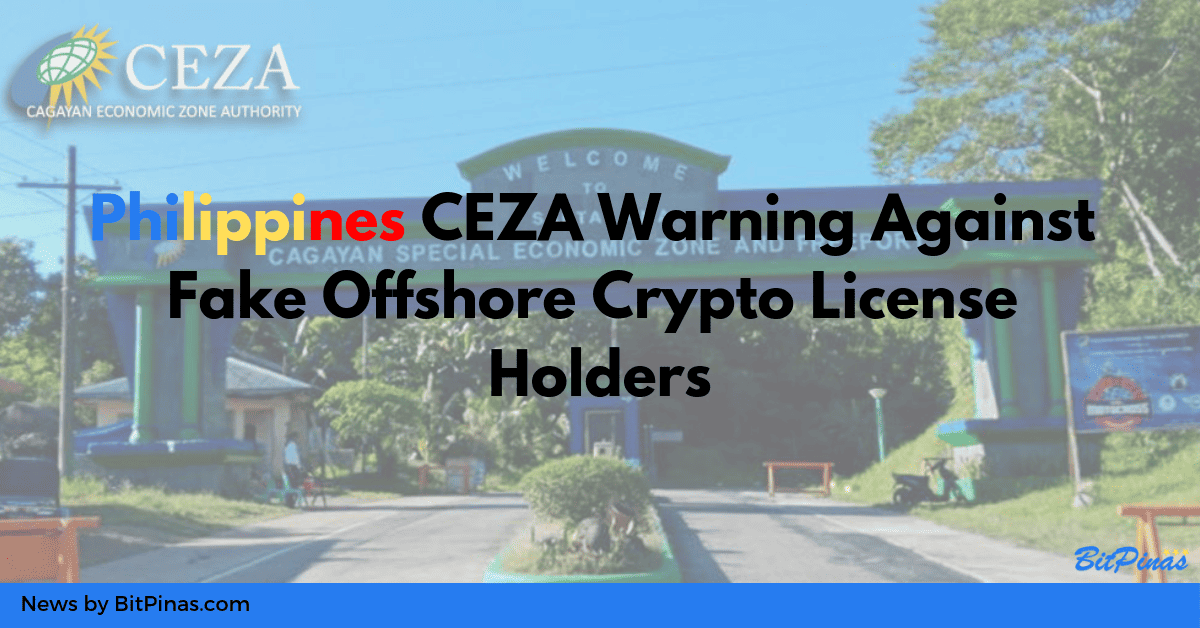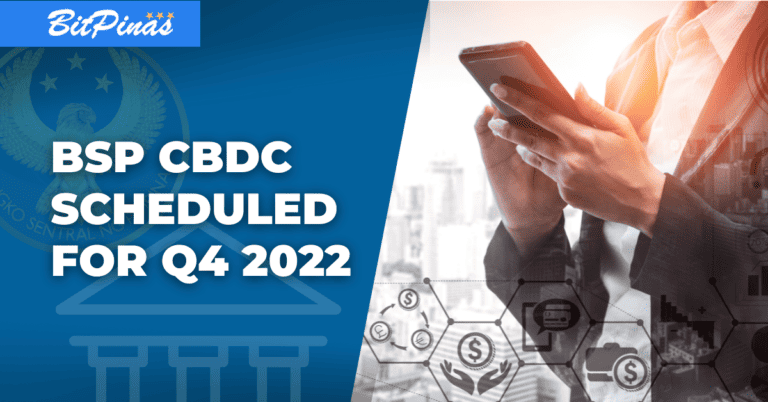CEZA Warns Public of Fake Offshore Crypto Exchange License Holders
The Philippines’ Cagayan Economic Zone Authority (CEZA) has issued a statement against entities claiming to have offshore virtual currency licenses.

February 20, 2019 – The Philippines’ Cagayan Economic Zone Authority (CEZA) has issued a statement against entities claiming to have offshore virtual currency licenses.
In an effort to combat firms and entities claiming to have an offshore virtual currency license, CEZA has published its most updated list of licensees which can be found in this article: List of Offshore Crypto Licensees from CEZA.
The list published is an updated version of the one obtained by BitPinas in January 2019. The new version still has 23 principal license holders, such as GMQ, Tiger Wheel, 6x, et. The Regular Licensees are divided into two – OVCE (offshore virtual currency exchange) regular licensees and FTSBE (Financial Technology Solutions Business) regular licensees. Let’s first discuss the three licenses and what they pertain to:
- Principal License – the license holder is allowed to engage in offshore virtual currency and fintech solutions operations in the economic zone.
- Regular License
- Offshore Virtual Currency Exchange (OVCE) – license holder is allowed offshore crypto exchange operations
- Financial Technology Solutions Business Enterprise (FTSBE) – license holder is allowed to do fintech operations in the economic zone.
More importantly, CEZA informs the public of the nature of these licenses, as pertaining to who can acquire them. Specifically, the government corporation said that no Filipino company, Filipino, or Philippine resident is allowed to apply or received an OVCE license. Also, a licensee is not allowed to sell securities to Filipinos (their license is offshore, meaning, their users and clients must be abroad) or exchange tokens to fiat. (Read More: PH CEZA Stomps Online Sabong and Unlicensed Crypto Firms)
Selling of securities is within the domain of the Securities and Exchange Commission (SEC) while the exchange of fiat to crypto is handled by the Bangko Sentral ng Pilipinas (BSP). For a list of licensed virtual currency exchanges, check out this article: List of Licensed Virtual Currency Exchanges in the Philippines.
In order to combat illegal activities, CEZA has allowed the creation of a self-regulatory organization – Asia Blockchain and Crypto Association (ABACA) to ensure companies in the zone are complying with the rules as set upon by CEZA. To further regulate the space, “Digital Asset Token Offering Regulations” are set up to protect investors.
CEZA has posted record growth as a government corporation in 2018 primarily due to the income arising from cryptocurrency, blockchain, and fintech firms that want to set up shop in the economic zone. CEZA expects Php 3.6 billion worth of revenue from offshore crypto license issuing and thousands of jobs generated in Cagayan.
This article originally appeared on BitPinas: CEZA Warns Public of Fake Offshore Crypto Exchange License Holders


![Peter Ing, BlockchainSpace [PH 2019 Crypto & Blockchain Year in Review] 4 Peter Ing, BlockchainSpace [PH 2019 Crypto & Blockchain Year in Review]](https://bitpinas.com/wp-content/uploads/2019/12/2019-Blockchain-and-Crypto-Philippines-6-3-1-768x402.png)


![[Interview] Blockdaemon on the Future of Web3 Gaming Industry 7 [Interview] Blockdaemon on the Future of Web3 Gaming Industry](https://bitpinas.com/wp-content/uploads/2023/12/Interview-Blockdaemon-VP-Shares-Company-Insights-Collabs-768x402.jpg)